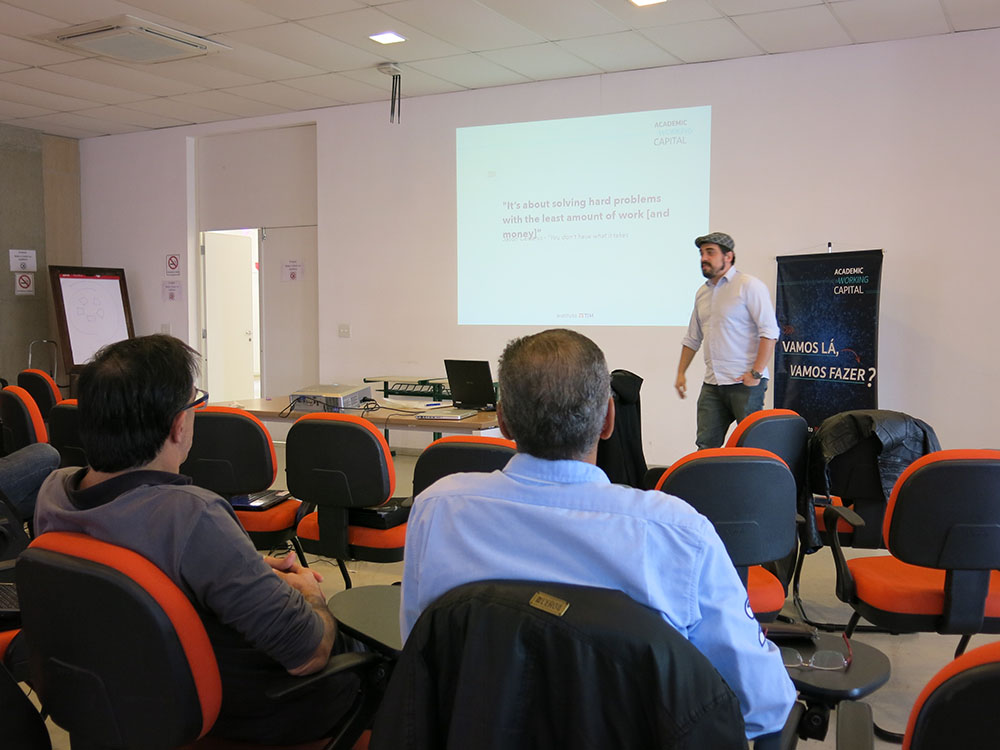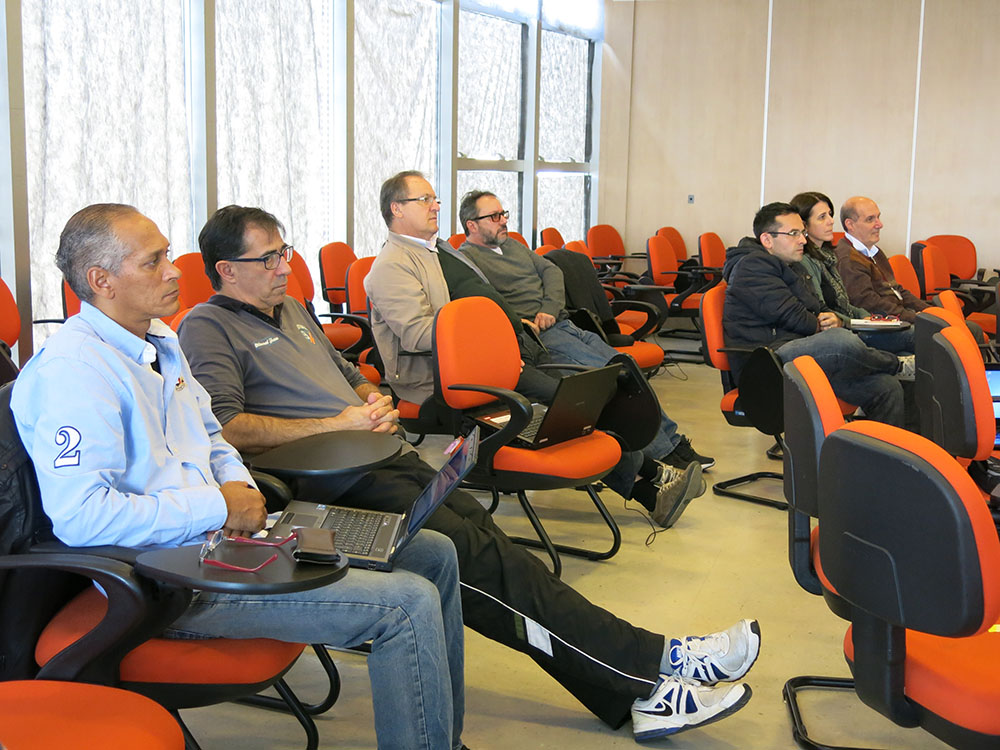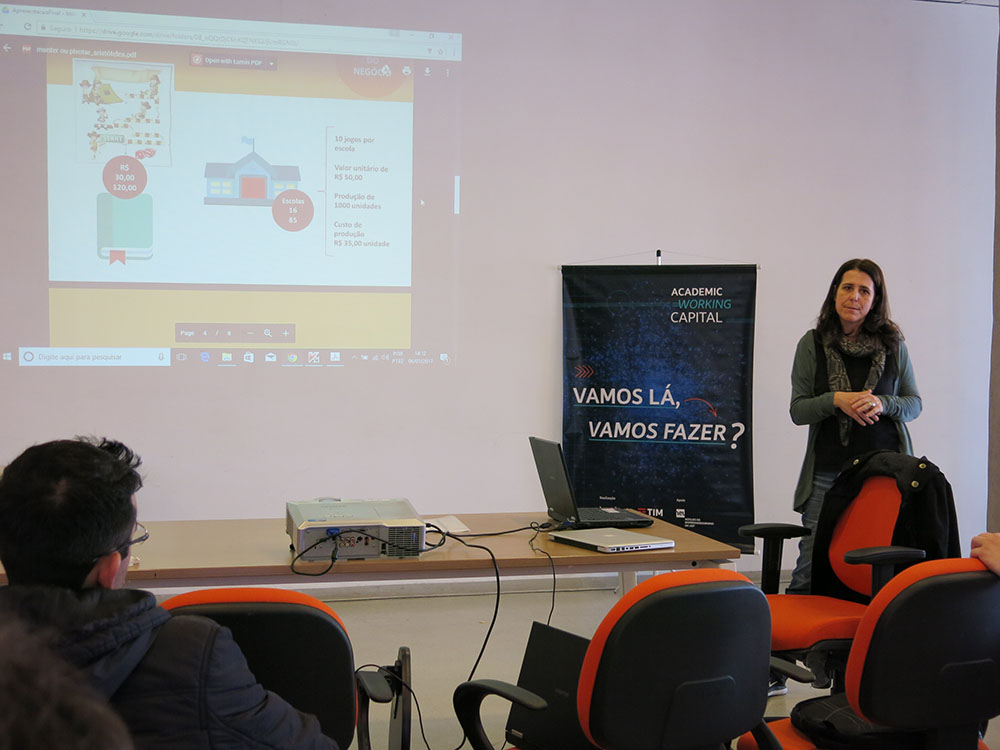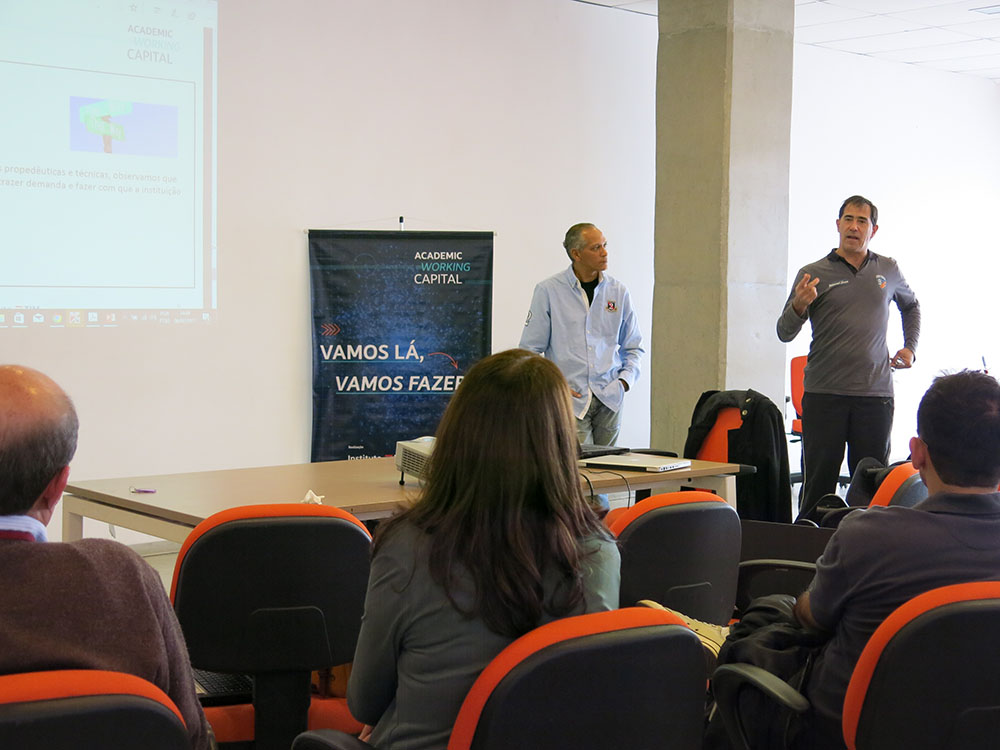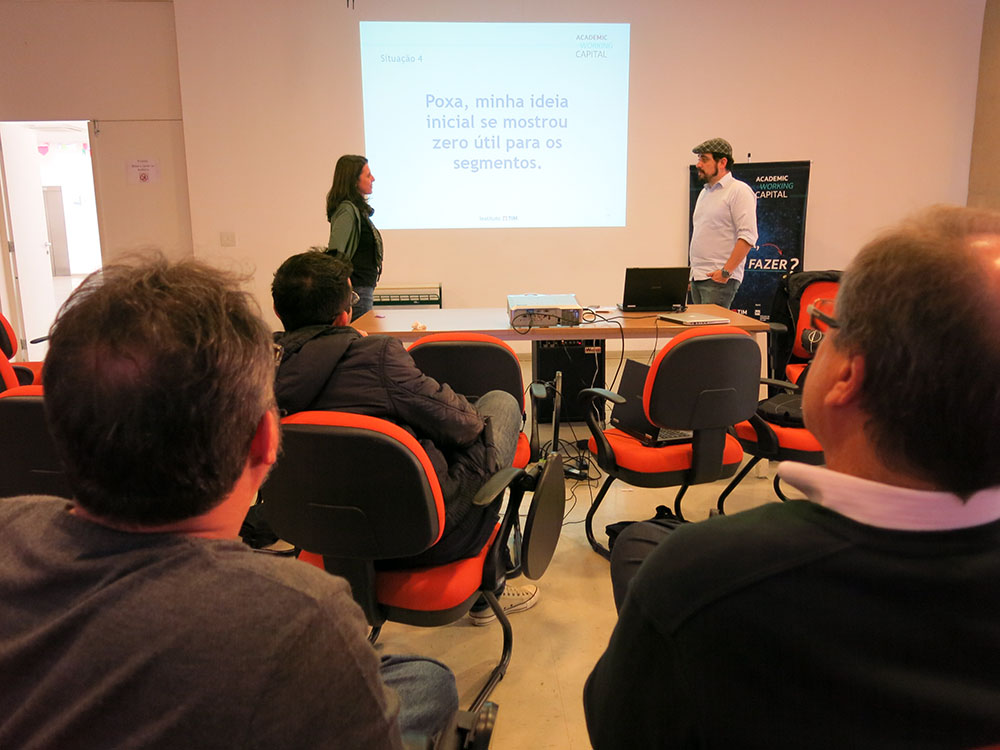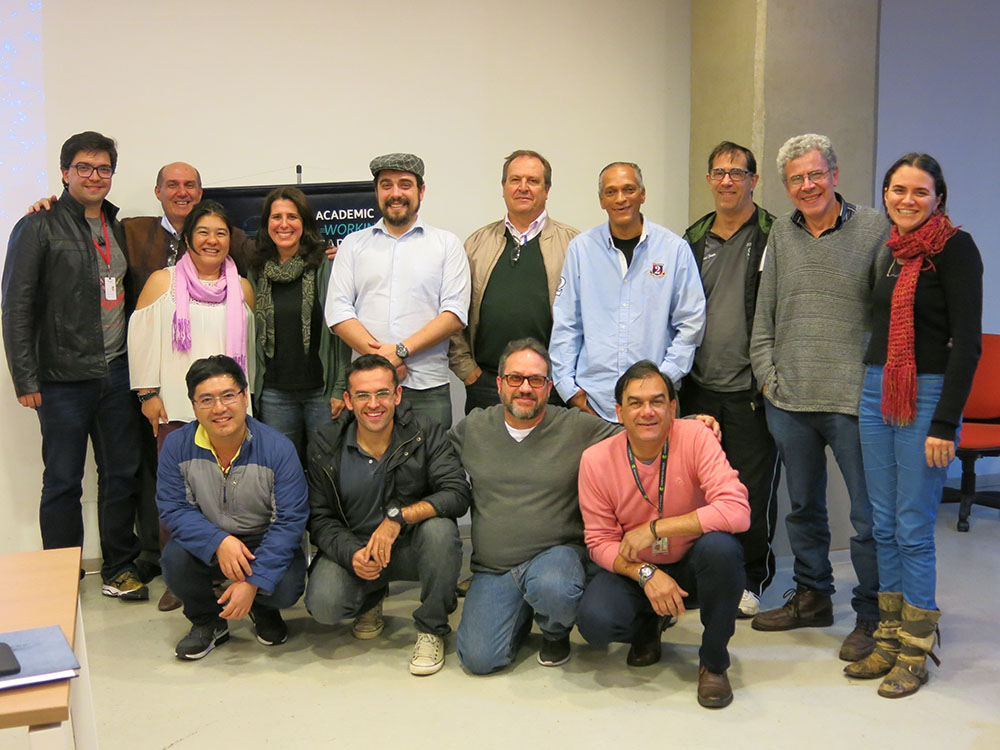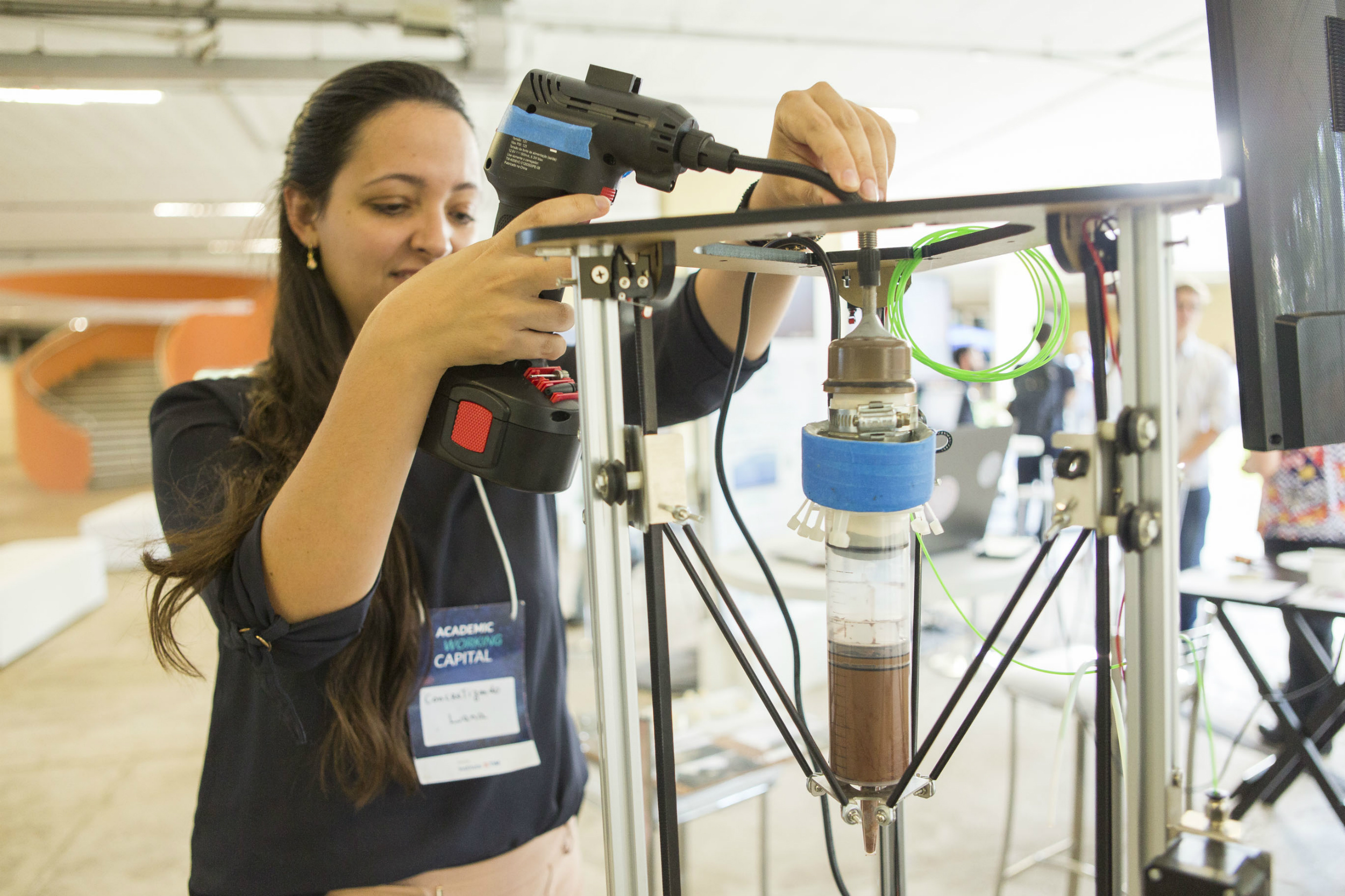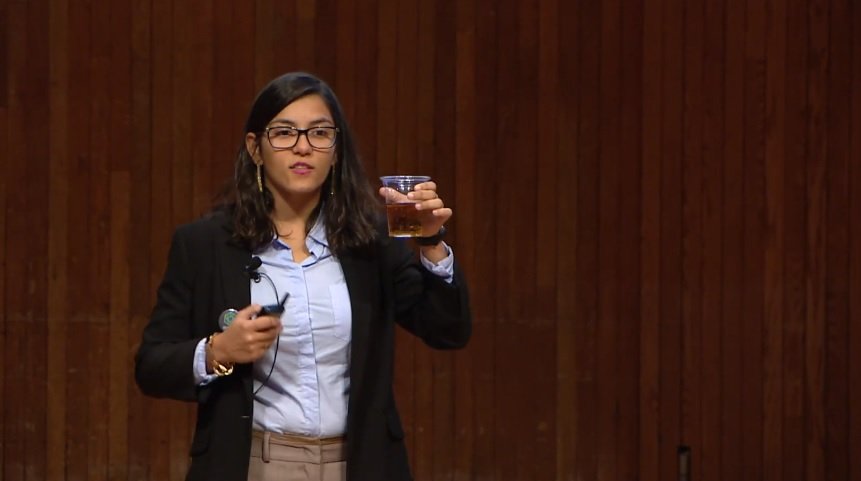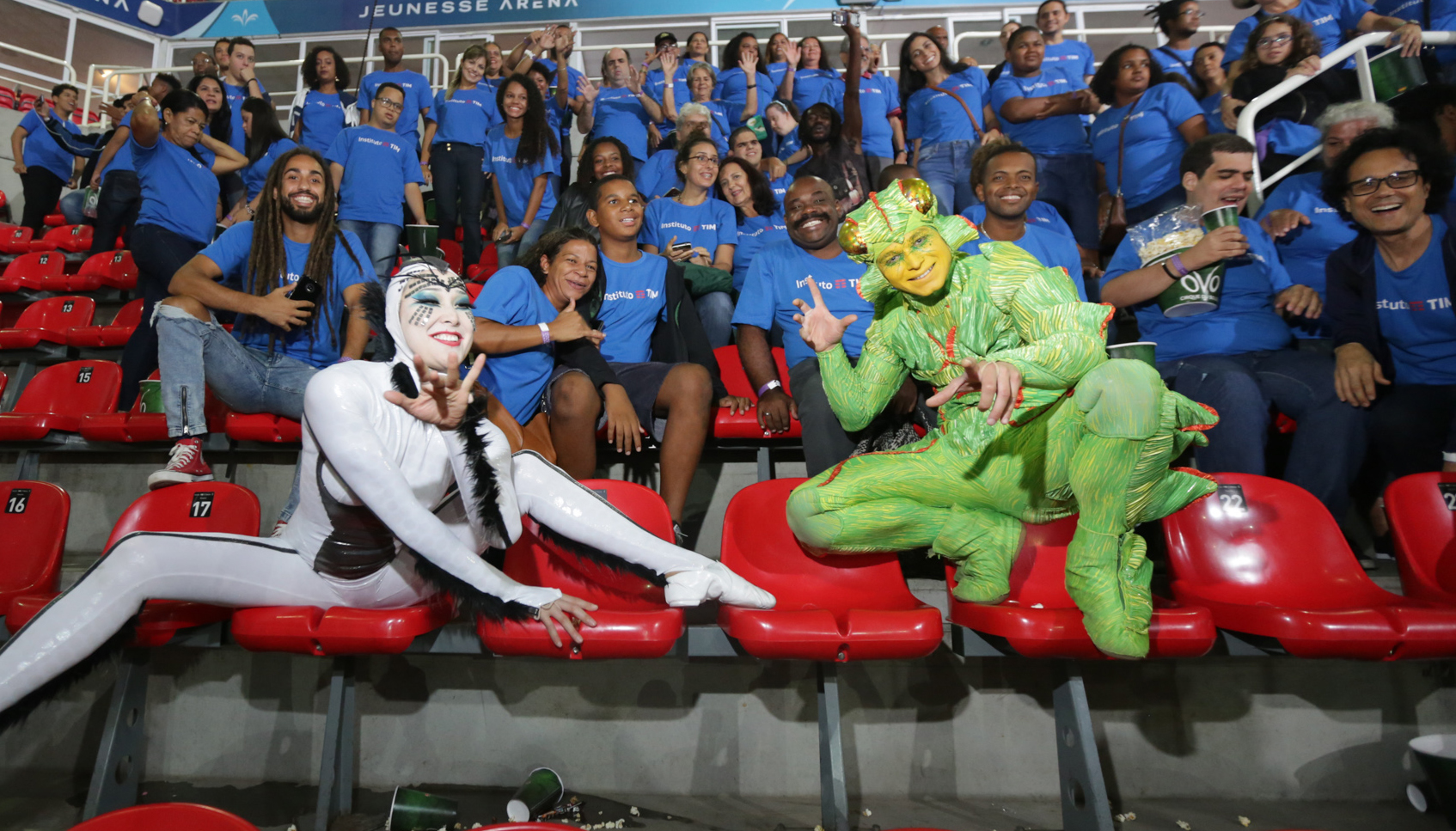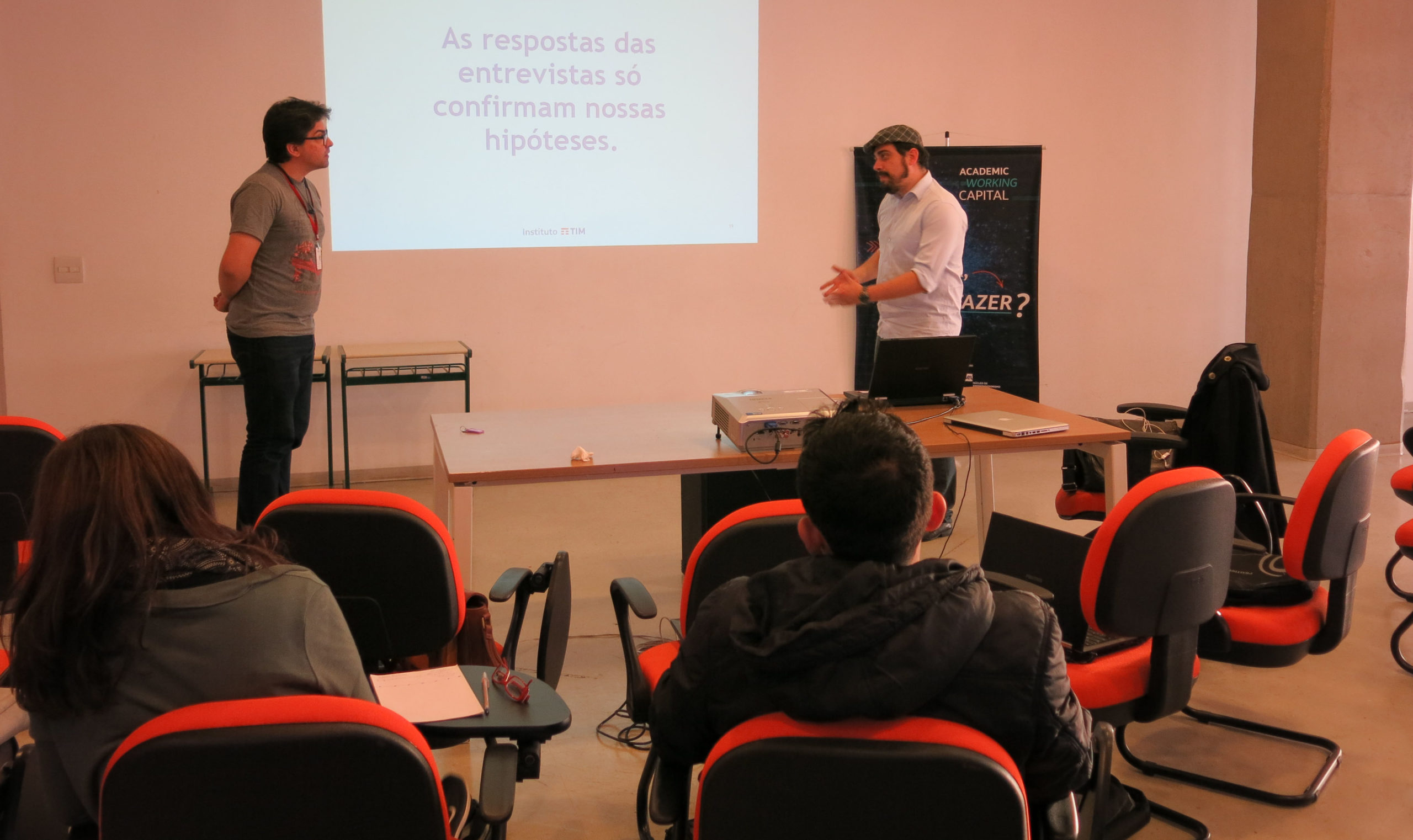
Last Thursday, July 6th, the 4th and last training of the Academic Working Capital program for teachers from State Technical Schools (Etecs) and Technology Colleges (Fatecs) of São Paulo took place. The meeting was held at Paula Souza Center and it was focused on the role of the mentor and the sharing of experiences that teachers have accumulated so far. They were invited to continue to participate in AWC as monitors, attending to on-site and online workshops and fortnightly meetings with the groups of 2017.
Learn how were AWC’s first, second, and third training for Etec teachers
AWC content coordinator, Diogo Dutra, recalled the subjects of previous meetings and summed up the main tools and ideas of the program – that entrepreneurship is a lot of work with little money; that the sooner you fail, the better; that the focus must be on the process, not on the idea; that testing the problem, solution and business model is fundamental; that going to field and carrying out interviews is essential; that the assumptions related to the solution and the product should be tested, revised and repeated. “You are here: you have already understood a bit about the process, and now you have another goal: ‘I will help other people to develop this process,'” he said.
Teachers presented the works of the last weeks and the evolution of the slide deck. The idea was for them to gather facts and data to make the decision to keep or to pivot their solution. Since 1st training, teachers have been working on a fictitious solution that could become a product, simulating what their students do at AWC (this year, the program is supporting Etec students in a pilot format).
Later, Diogo gave a lecture about the role of the mentor, based on three conceptual pillars: scientific entrepreneurship, culture of action on chaos and practices oriented to challenge and reflection. “Bypassing fears and getting them out of the comfort zone is mentor’s role,” Diogo said. “It is not just about the tools; it is also working with that emotion, which is inherent in the idea of startup.” The monitor’s role is to deal with all of the emotions of not knowing which the right way is.
To complement, a dynamic led teachers to test how they would behave as mentors. Diogo brought to the group some situations which are common at AWC – “my team has not done any interviews,” “my initial idea proved useful zero to the segments,” “all respondents are validating the idea.” Teachers were asked to give their feedback and then everyone discussed possible directions.
In closing, the Project Coordinator of the Paula Souza Center Department of Management and Business, G. Monteiro, said that AWC has everything to do with the center’s strategic policy, which is not only to work on a project for the market, but to work on entrepreneurial skills. The teachers also shared their impressions on the training. “What I bring to school, what was strong, was Canvas and research. Journey and persona is still a bit confusing. We could see how important the research was,” Salomão Choueri Júnior, from Etec Jorge Street, gave his opinion. “When you’re sitting on the other side, listening to the student, it’s a different thing. You stop to think, you go and start acting. And they come to their own conclusion, you don’t have to say ‘no, this is bad,'” said Adriana Mariko Yonamine Nakatani, from Etec Júlio de Mesquita.
Teachers from Etecs Bento Quirino, Jorge Street, Júlio de Mesquita, Rosa Perrone Scavone, Getúlio Vargas and Aristóteles Ferreira and from Fatec São Bernardo do Campo participated in the training.
